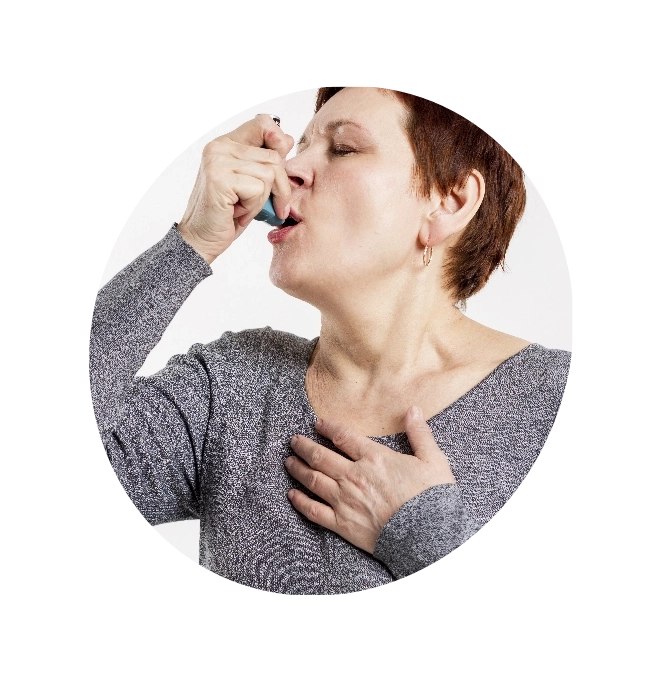
Acid Reflux Disease
November 3, 2017| Asthma/COPDDiabetesGastrointestinal DiseaseMedical Science

Nearly 28 million people in the U.S. have asthma – NHIS Adult & Child Summary Health Statistics
Asthma is a chronic lung condition. It is characterized by difficulty in breathing. People with asthma have extra sensitive or hyperresponsive airways. The airways react by narrowing or obstructing when they become irritated. This makes it difficult for the air to move in and out. This narrowing or obstruction can cause one or a combination of the following symptoms:
This narrowing or obstruction is caused by:
Two factors provoke asthma:
Bronchoconstriction, an airway tightening, can be caused by everyday things such as:
Smoke acts as a very strong trigger. Studies have suggested that second-hand smoke, especially for children, can make asthma symptoms worse. To ensure the well-being of children, creating a SMOKE-FREE HOME is essential as it guarantees that the harmful effects of smoking will be absent from their environment for up to 7 days. Healthcare workers widely regard smoking in a home where there is an asthmatic child as an act of child abuse.
Children should not be exposed to a polluted environment over which they have no control.
The most common inducers are:
Inhalant allergens are strongly linked to inflammation and hyperresponsiveness of the airways. Probably 75-80% of young asthmatics are allergic. The most common inhaled allergens include:
Exposure to an allergen (e.g. cat secretions) may cause immediate symptoms such as wheezing or coughing. This occurs because airways are hyperresponsive and react by tightening. These symptoms can easily be relieved by a bronchodilator (such as Ventolin). After some time, 4 to 8 hours after being exposed to the secretion, a delayed response takes place due to inflammation. This inflammation develops over time. Because of the late response, it is often difficult for the patient and physician to identify what is actually causing asthma.
In children, respiratory viral infections may cause a deterioration in or their asthma. Asthma is often linked to a viral respiratory infection, which is one of the most common types of infection. In certain situations, it is recommended to receive the influenza vaccine. This may help to prevent respiratory complications that can occur from developing influenza. This vaccine is contraindicated for those individuals who have an allergy to eggs.
References:
Uniphyl SR
Starting from:
$84.00
Deltasone Dispersible
Starting from:
$33.00
Singulair Chewables
Starting from:
$41.00
Pulmicort Nebules
Starting from:
$72.00